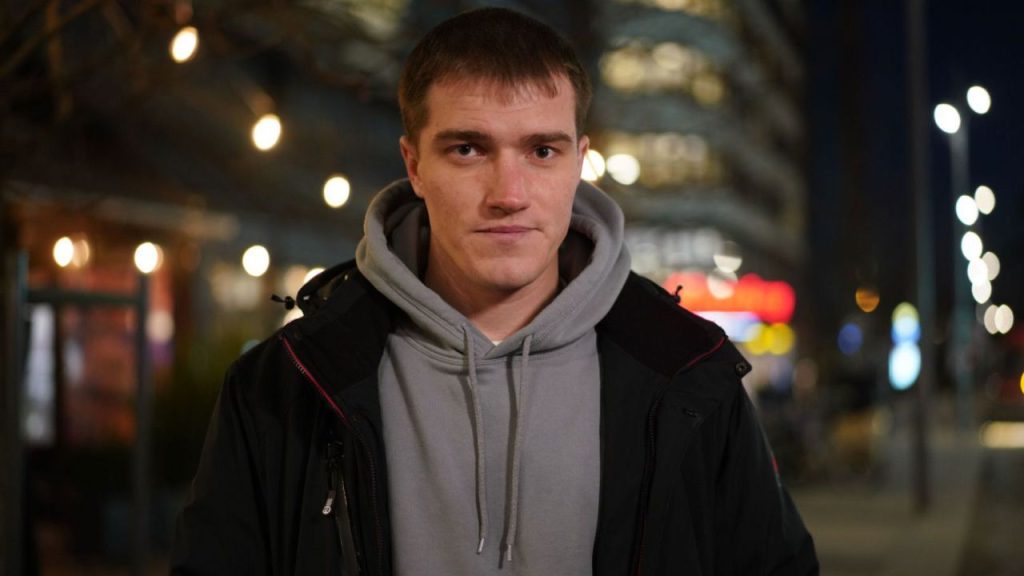On January 12, Andrey Medvedev, a former mercenary of the infamous private military company (PMC) Wagner, crossed the Russian-Norwegian border near the Russian city of Murmansk. He got to one of the border towns, knocked on the door of the first house he saw, and asked the residents to call the police. Medvedev was detained by border guards and police, after which he was taken to Oslo by plane to a migrant detention center.
Defector
In a recent interview for CNN, Andrey Medvedev said that the brutality he witnessed in Ukraine eventually drove him to defect.
Medvedev, 26, who claims to have previously served in the Russian army, joined the Wagner group as a volunteer. He crossed the Ukrainian border less than 10 days after signing his contract in July 2021 and served near Bakhmut.
According to him, Vagner Group fighters were often sent into combat without specific instructions, and the treatment of recruits was ruthless. Medvedev, after fleeing from the PMCs and crossing the border, sought refuge in the Norwegian capital of Oslo.
He had a fake journalist ID under a false name, which helped Medvedev to escape from Russia. The credential was supposed to serve as a cover if the police asked him to verify his identity in Russia.
He said: “They (“Wagner” – ed.) would round up those who did not want to fight and shoot them in front of newcomers. They brought two prisoners who refused to go fight and they shot them in front of everyone and buried them right in the trenches that were dug by the trainees.”
СNN notes that the Wagner PMC refused to comment on this. Medvedev stated that he reported directly to the founders of the group – Dmitri Utkin and Yevgeny Prigozhin. He calls Prigozhin “the devil.”
“If he was a Russian hero, he would have taken a gun and run with the soldiers,” Medvedev said.
The publication notes that Medvedev was emotional during the interview, saying he saw courage on both sides of the war. “You know, I saw courage on both sides, on the Ukrainian side as well, and our boys too… I just want them to know that,” he said. And he added that he now wants to share his story to help hold Prigozhin and Russian President Vladimir Putin accountable.
Prigozhin had earlier confirmed that Medvedev served in his company and said that he “should have been prosecuted for attempted abuse of prisoners.”
Medvedev, however, said he did not want to comment on what he did while fighting in Ukraine.
A political asylum seeker?
There are few such cases of Russian servicemen defecting to Europe. Because of this, they are especially visible. Another loud case of fleeing the war was the story of Pavel Filatiev.
Pavel took part in the invasion of Ukraine from the very first days. The war shocked him so badly that he risked imprisonment to write an exposé about the moral problems he sees in Russia’s military action. The soldier has since fled to France, where he has applied for asylum.
Filatiev has written a “ZOV” book about his experiences of the war, and it has been published in France and Estonia.
However, all of these rare cases of seeking political asylum in European countries raise questions of a moral and legal nature. How should such people be treated? Are they victims of war, fugitives from persecution, or war criminals?
Undoubtedly, in favor of the first version, there are sad precedents aimed at intimidating Russian soldiers. The story of 55-year-old Evgeny Nuzhin, a former prisoner who joined the ranks of the Wagner PMC is worth remembering.
Nuzhin surrendered to the Ukrainian side, during interrogation he repeatedly spoke about the horrors of war and expressed his dissatisfaction with the Russian government and commanders. Later, Nuzhin was exchanged for Ukrainian prisoners as part of another prisoner exchange between Russia and Ukraine.
On the evening of November 12, 2022, a video with the caption “Hammer of Retaliation” appeared on the Telegram channel Grey Zone, which is associated with the PMC Wagner. In the video, you can see Nuzhin, whose head is taped to the bricks. At the end of the video, the man behind the screen hits Nuzhin’s head several times with a sledgehammer.
Obviously, this is a deliberate act of intimidation. Both Filatiev and Medvedev spoke of persecution and fear of retaliation. Accordingly, their flight to Europe is an escape from the inevitable death and extra-judicial reprisals.
But, unfortunately, other options cannot be ruled out.
Russian defectors can be potential agents of influence. First, they show themselves as victims, then they gain an audience, and after that, they can begin to promote pro-Russian narratives. This was the case, for example, with Maria Ovsyannikova, who became famous after the protest against the war in the news program. Nevertheless, very quickly Maria began to promote a narrative about the need to ease sanctions on Russia.
Of course, it takes time and hard evidence to figure out if the defectors are agents of influence.
However, the ex-servicemen who fled to Europe are not victims of war. Both Filatiev, Medvedev, and Nuzhin joined the Russian army as volunteers. They consciously joined the army. Moreover, the PMC members are mercenaries, who go to war for money. Mercenary is a criminal offense in many countries, including Ukraine.
Andrey Medvedev willingly comments on the horrors of war and the inhumane Russian regime. However, he does not talk about what exactly he was doing in Ukraine.
The legal nature of political asylum is to protect a foreign citizen from illegal persecution in his home country. Such persecution obviously exists. But it should be understood that all these deserters participated in the crime of aggression against Ukraine. Accordingly, European countries should hand such people over to Ukraine – for an objective investigation.
Photo: Darren Bull/CNN

